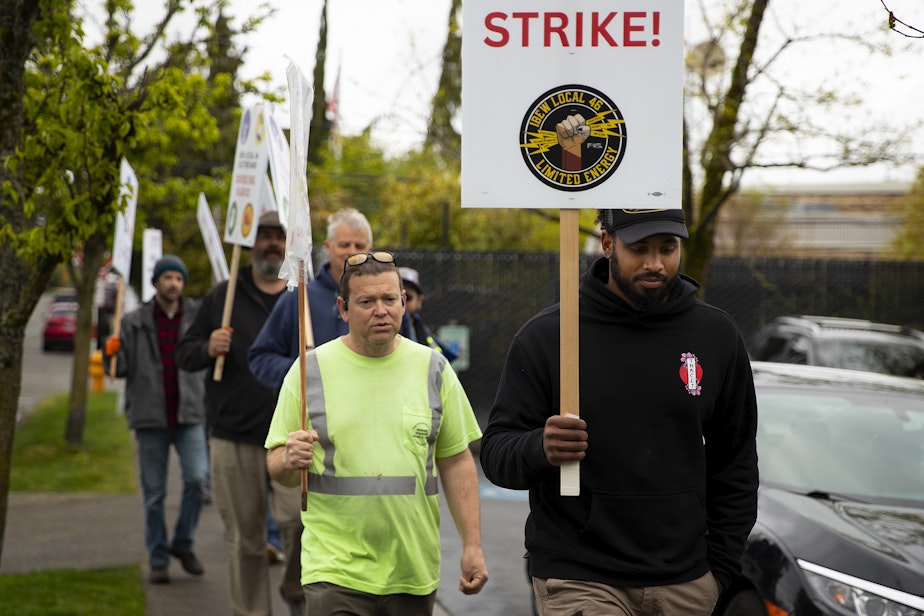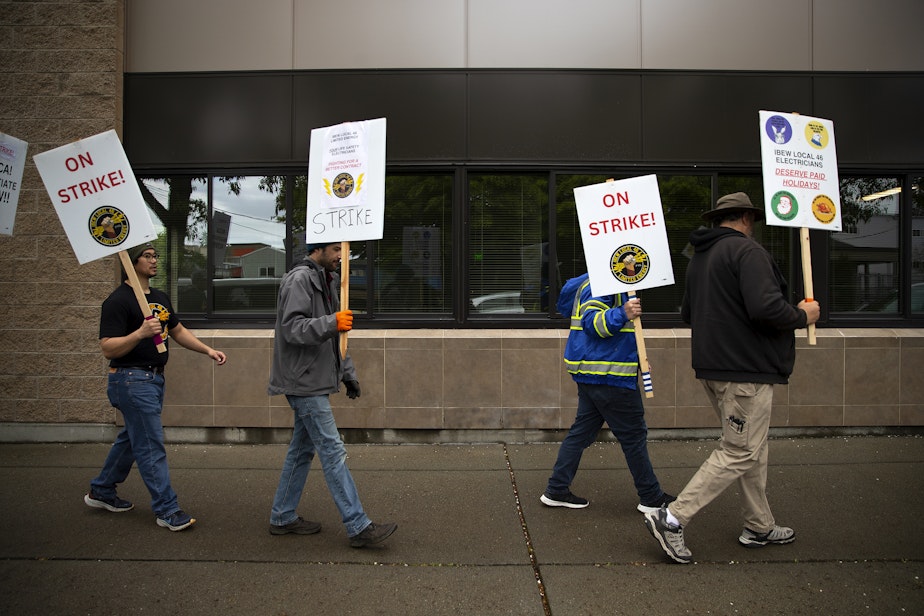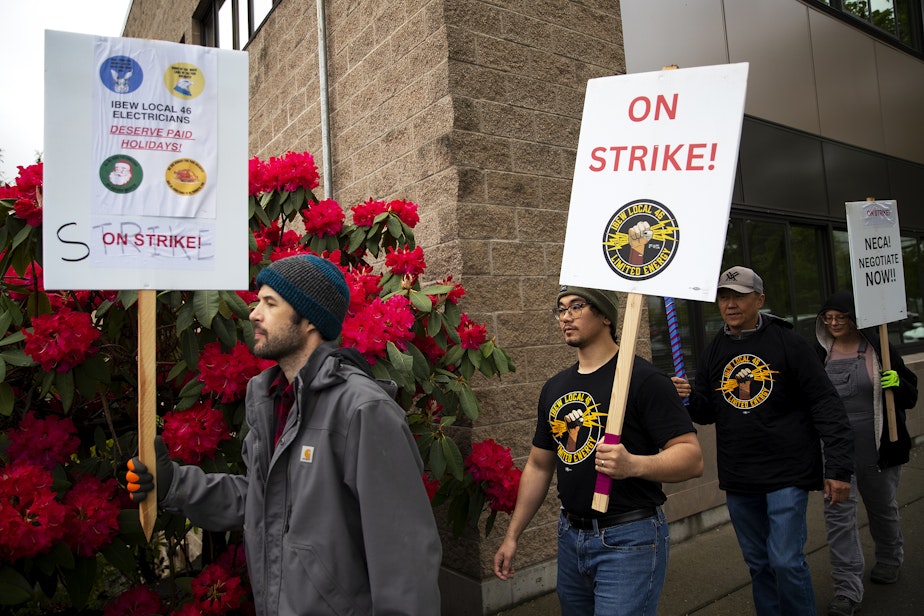Striking Seattle electrical workers demand better pay, improved safety

Striking electrical workers from IBEW Local 46 have shut down eight work sites after negotiations broke down with the Puget Sound Chapter of the National Electrical Contractors Association (NECA).
These are the workers who maintain the invisible infrastructure Seattleites use to stay connected and safe every day. They install and maintain security systems, badge readers, fire alarms, and emergency response systems.
“When you think of sound, when you think of communication, when you think of data, when you think of life security, think about our unit,” said Quincy Hernandez, an apprentice with IBEW LU 46. “Your Wi-Fi, your Microsofts or Amazons, cameras, card readers, think of us.”
Hernandez and several other striking workers picketed Thursday morning on Brooklyn Avenue in Seattle’s University District. They had all been up since 4 a.m. By 10:15 they huddled under the overhang of the U-District light rail station to stay dry.
Hernandez said they are tired, but undeterred.
“We’re not here for nothing,” he said.
Sponsored

Union demands
This is the first time the union, which has more than 1,000 members, has gone on strike in several decades. Unit members are asking for better compensation and wages that keep up with the pressures of inflation. They are pushing for a 27% wage increase over the next three years. The NECA has countered with a proposed 15% wage increase.
The electrical workers also want paid holidays, a nod to a better work-life balance.
Torrey Patterson said taking time off on days like Veteran’s Day just doesn’t feel possible for him, even though he is a veteran.
“It's very stressful to take the federal paid holiday off,” Patterson said. “Christmas Thanksgiving, you get the day off with your family. But in the back of your mind, you're stressing about not having that paycheck for those hours for that day.”
Sponsored
The workers also want compensation for their time commuting. Many can’t afford to live in Seattle. They commute hours from places like Skagit Valley and Thurston County.
Patterson comes from Olympia every day. That’s a multi-hour commute on top of his eight- to 10-hour workdays.
Hernandez, who is still gaining skills as an apprentice, said he can see how the stressors of being in this trade affect his colleagues and mentors.
“It's wearing down on them because it's hard to sacrifice all the time to have to spend commuting plus working, less time away from family, you know,” he said. “We would definitely like to be compensated for the work that we do.”
Safety measures
Sponsored
Workers are also asking for better safety measures. They specifically want to make sure they are being supplied with radios, since electrical workers often spend their hours in hard-to-reach places.

Nooks and crannies in basements, underground, or in the I-90 tunnel for example aren’t good places for a cell phone to connect.
That’s a problem, especially if there is an emergency and someone gets hurt, said Mike Holcomb, another striking electrical worker.
“So we're trying to get radios on site," Holcomb said. "And that would really help because, you know, where phones can't penetrate radios can and if you get crushed by something, or you're stuck up in a lift, anything happens, you can call somebody for help.”
Sponsored

The contractors association said that employers provide radios to individual contractors as needed and that the stipulation need not be explicitly written into a contract.
Sponsored
IBEW Local 46 and NECA have been in ongoing negotiations since January. Union members have been striking for two weeks and say they will continue until the contract is ratified.
NECA said in a statement that it will continue to bargain in good faith with the union. In the meantime, the striking workers told KUOW that many are turning to gig work, like driving for Lyft and Uber, or on-demand food delivery to make ends meet.
Under the dry overhang of the light rail station, the group of five workers KUOW spoke with leaned toward the mic. Chuckling, Holcomb said that they want to be negotiating and are ready to talk to NECA “24/7.”
Next to him, Patterson agreed.
“We’d rather be at work,” he said. “And I believe we're showing that by being out here for the last two weeks we show up and show out no matter where we are — Rain. shine, cold, or freezing.”
EDITOR'S NOTE: This story was updated on Friday, April 26 to more clearly explain the wage increases proposed by the union and the counter-offer from the contractor's association.




